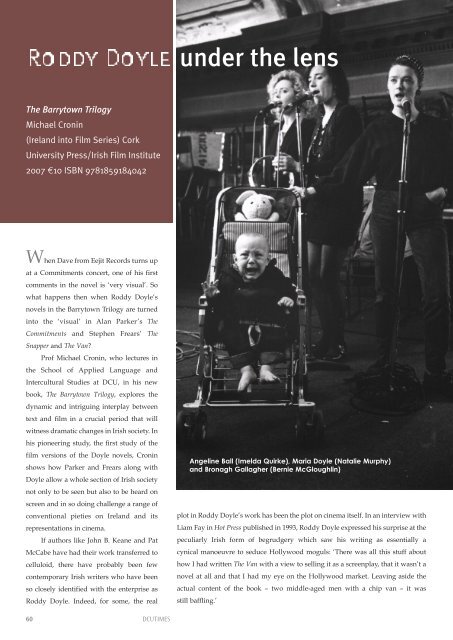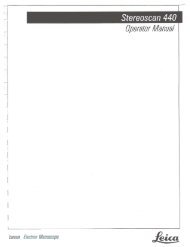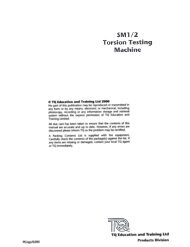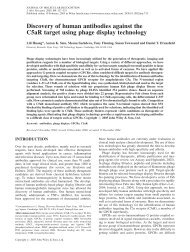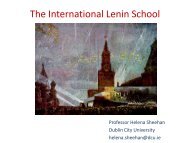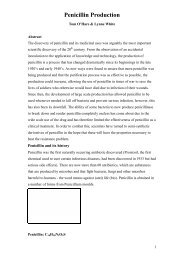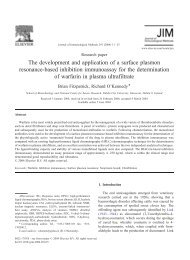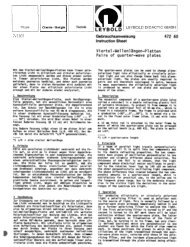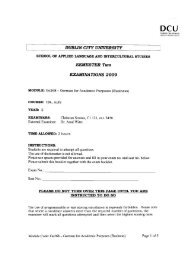Roddy Doyle under the lens
Roddy Doyle under the lens
Roddy Doyle under the lens
You also want an ePaper? Increase the reach of your titles
YUMPU automatically turns print PDFs into web optimized ePapers that Google loves.
<strong>Roddy</strong> <strong>Doyle</strong> <strong>under</strong> <strong>the</strong> <strong>lens</strong><br />
The Barrytown Trilogy<br />
Michael Cronin<br />
(Ireland into Film Series) Cork<br />
University Press/Irish Film Institute<br />
2007 ?10 ISBN 9781859184042<br />
When Dave from Eejit Records turns up<br />
at a Commitments concert, one of his first<br />
comments in <strong>the</strong> novel is ‘very visual’. So<br />
what happens <strong>the</strong>n when <strong>Roddy</strong> <strong>Doyle</strong>’s<br />
novels in <strong>the</strong> Barrytown Trilogy are turned<br />
into <strong>the</strong> ‘visual’ in Alan Parker’s The<br />
Commitments and Stephen Frears’ The<br />
Snapper and The Van?<br />
Prof Michael Cronin, who lectures in<br />
<strong>the</strong> School of Applied Language and<br />
Intercultural Studies at DCU, in his new<br />
book, The Barrytown Trilogy, explores <strong>the</strong><br />
dynamic and intriguing interplay between<br />
text and film in a crucial period that will<br />
witness dramatic changes in Irish society. In<br />
his pioneering study, <strong>the</strong> first study of <strong>the</strong><br />
film versions of <strong>the</strong> <strong>Doyle</strong> novels, Cronin<br />
shows how Parker and Frears along with<br />
<strong>Doyle</strong> allow a whole section of Irish society<br />
not only to be seen but also to be heard on<br />
screen and in so doing challenge a range of<br />
conventional pieties on Ireland and its<br />
representations in cinema.<br />
If authors like John B. Keane and Pat<br />
McCabe have had <strong>the</strong>ir work transferred to<br />
celluloid, <strong>the</strong>re have probably been few<br />
contemporary Irish writers who have been<br />
so closely identified with <strong>the</strong> enterprise as<br />
<strong>Roddy</strong> <strong>Doyle</strong>. Indeed, for some, <strong>the</strong> real<br />
60 DCUTIMES<br />
Angeline Ball (Imelda Quirke), Maria <strong>Doyle</strong> (Natalie Murphy)<br />
and Bronagh Gallagher (Bernie McGloughlin)<br />
plot in <strong>Roddy</strong> <strong>Doyle</strong>’s work has been <strong>the</strong> plot on cinema itself. In an interview with<br />
Liam Fay in Hot Press published in 1993, <strong>Roddy</strong> <strong>Doyle</strong> expressed his surprise at <strong>the</strong><br />
peculiarly Irish form of begrudgery which saw his writing as essentially a<br />
cynical manoeuvre to seduce Hollywood moguls: ‘There was all this stuff about<br />
how I had written The Van with a view to selling it as a screenplay, that it wasn’t a<br />
novel at all and that I had my eye on <strong>the</strong> Hollywood market. Leaving aside <strong>the</strong><br />
actual content of <strong>the</strong> book – two middle-aged men with a chip van – it was<br />
still baffling.’
“ There was<br />
all this stuff<br />
about how I had<br />
written The Van<br />
with a view to selling it<br />
as a screenplay,<br />
that it wasn’t a novel<br />
at all and that<br />
I had my eye on<br />
<strong>the</strong> Hollywood market.<br />
Leaving aside <strong>the</strong><br />
actual content of <strong>the</strong> book<br />
– two middle-aged men<br />
with a chip van –<br />
”<br />
it was still baffling.<br />
<strong>Doyle</strong> is right to be sceptical about<br />
<strong>the</strong> motives of his more malign critics but<br />
he should be less baffled that his work is<br />
associated with an artistic practice that<br />
has been an integral part not only of <strong>the</strong><br />
lives of characters but of his own activity<br />
as a writer.<br />
In his study, Cronin concentrates <strong>the</strong><br />
high point of that activity, namely <strong>the</strong> film<br />
versions of three novels which constitute<br />
<strong>the</strong> Barrytown Trilogy, and which<br />
appeared as The Commitments (1991), The<br />
Snapper (1993) and The Van (1996). Taken<br />
toge<strong>the</strong>r, <strong>the</strong> novels and <strong>the</strong> films constitute<br />
a crucial body of work that<br />
not only give voice to <strong>the</strong> particular<br />
preoccupations of <strong>the</strong> recent Irish past but<br />
remain startlingly contemporary in <strong>the</strong><br />
manner in which <strong>the</strong>y articulate <strong>the</strong><br />
specific relationship between Irish locality<br />
and global futures. Cronin shows how <strong>the</strong><br />
films give rise to a new <strong>under</strong>standing of<br />
Donal O'Kelly (Bimbo) and Colm Meany (Larry)<br />
DCUTIMES<br />
place and identity in Ireland, and offers<br />
crucial insights into <strong>the</strong> importance of<br />
popular culture in reworking established<br />
categories of identification and belonging.<br />
Most importantly, Cronin<br />
demonstrates how <strong>the</strong> films in <strong>the</strong><br />
Barrytown Trilogy can be viewed as part<br />
of a project of generation and a crucible of<br />
change. The films ra<strong>the</strong>r than being <strong>the</strong><br />
last chapters in a romance of loss penned<br />
by <strong>the</strong> disaffected form <strong>the</strong> template for<br />
<strong>the</strong> emergence of a new kind of Ireland.<br />
The Commitments on stage. Bronagh Gallagher (Bernie McGloughlin), Angeline Ball (Imelda Quirke), Maria<br />
<strong>Doyle</strong> (Natalie Murphy), Felim Gormley (Dean Fay), Johnny Murphy (Joey ‘The Lips’ Fagan), Kenneth<br />
McCluskey (Derek Scully), Andrew Strong (Deco Cuffe), Dick Massey (Billy Mooney), Glen Hansard (Outspan<br />
Foster)<br />
61


